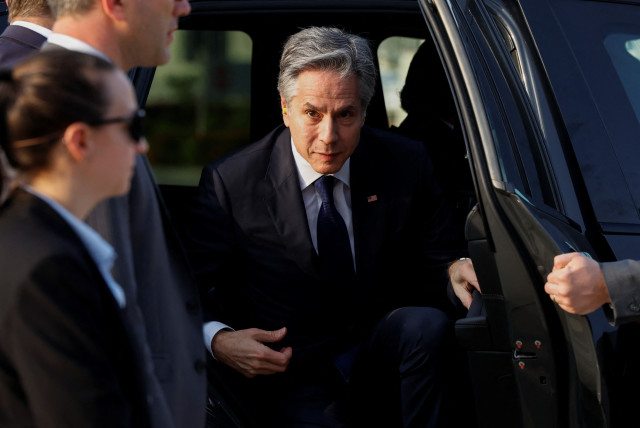Israel-Saudi normalization on the table as part of new US defense treaty - WSJ

As a preliminary component of the deal, Israel would have to agree to a complete ceasefire and Palestinian statehood.
The Biden administration is working toward a treaty with Saudi Arabia which would see US forces help defend the Gulf nation as part of a deal which would see normalized diplomatic ties between Saudi Arabia and Israel, US and Saudi officials told the Wall Street Journal in a report published on Sunday.
The treaty has been named “the Strategic Alliance Agreement” and will require a two-thirds majority vote in the Senate to pass.
What is the cost of Saudi normalization?
Despite the growing willingness to normalize ties, the treaty reportedly hinges on Israel’s commitment to establish a Palestinian state and an end to the war against Hamas.
Hamas attacked Israel on October 7, killing over 1200 people and abducting over 250 more. Israel has stated that the war will not end until Hamas is destroyed. Various ceasefire agreements have been proposed which would see a pause in fighting in exchange for the release of both dead and living hostages, however, Hamas has rejected these agreements.
The WSJ reported that this deal was a pathway toward greater acceptance among its Islamic Middle Eastern neighbors, but that it would come at the cost of a two-state solution.
How does the treaty benefit the US?
The US would not go without seeing its own benefit from the treaty, as if it passed it would enable Washington access to Saudi territory and airspace to protect US interests and regional partners.
“By ensuring that Saudi Arabia is more fulsomely tied to the US when it comes to security, technology, and long-term economic and commercial efforts,” said Jonathan Panikoff, a former senior US intelligence official now at the Atlantic Council think tank, it would also “disrupt efforts by Beijing to make progress in the region and find additional allies willing to support its efforts to shift away from the US-led liberal international order.”
“It would be the first time the US concluded a mutual defense pact that would carry the force of law since the 1960 revision of the US-Japan treaty, and the first time it concluded such an agreement with an authoritarian country,” Aaron David Miller, a former US peace negotiator now with the Carnegie Endowment for International Peace, told the source.
Costs and benefits for Saudi Arabia
While the deal has many beneficial components for Riyadh, the WSJ noted the deal risked inflaming tensions with Iran.
As part of the broader deal, but not the treaty, the US would reportedly US support the development a Saudi civilian nuclear program with uranium enrichment. This is a contentious issue as global concerns have arisen over Iran’s uranium enrichment.
Jerusalem Post Store
`; document.getElementById("linkPremium").innerHTML = cont; var divWithLink = document.getElementById("premium-link"); if (divWithLink !== null && divWithLink !== 'undefined') { divWithLink.style.border = "solid 1px #cb0f3e"; divWithLink.style.textAlign = "center"; divWithLink.style.marginBottom = "15px"; divWithLink.style.marginTop = "15px"; divWithLink.style.width = "100%"; divWithLink.style.backgroundColor = "#122952"; divWithLink.style.color = "#ffffff"; divWithLink.style.lineHeight = "1.5"; } } (function (v, i) { });

